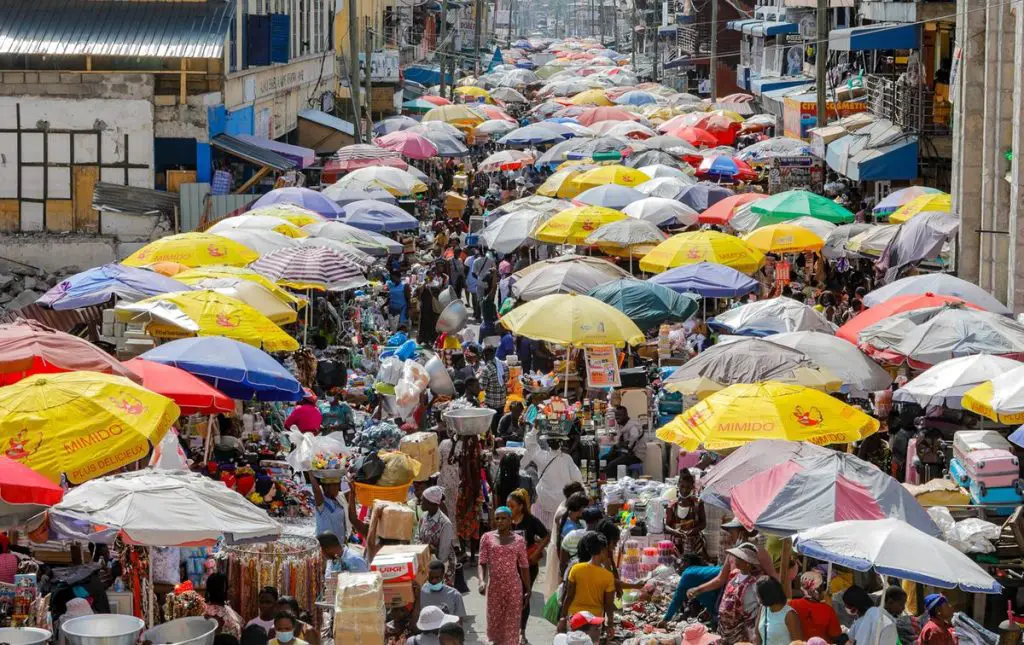- The Ghanaian parliament has approved a proposal by the government to borrow up to US$750 million from Afreximbank
- A seven-year portion of the loan is broken up into two parts: one for US$102.19 million with an interest rate of 6.49 per cent overall, including fees, and another for 101 million dollars with a rate of 9.55 per cent overall
- In June, Finance Minister Ken Ofori-Atta requested parliament to accelerate the authorisation of the loans
The Ghanaian parliament has authorised a proposal by the government to borrow up to US$750 million from the African Export-Import Bank for the 2022 budget.
In June, Finance Minister Ken Ofori-Atta requested parliament to accelerate the authorisation of the loans.
However, differences have held up the process even though the country faces skyrocketing inflation, lacklustre economic growth and a tumbling local currency.
The vote by the deadlocked parliament eliminates a significant obstacle for the government of President Nana Akufo-Addo to continue with budget projects and stabilise finances after losing access to the foreign financial market this year.
Interest Rates for the Loans
A seven-year portion of the loan for up to US$750 million is broken up into two parts: one for USUS$102.19 million with an interest rate of 6.49 per cent overall, including fees, and another for US$ 101 million with a rate of 9.55 per cent overall.
According to the findings of a report compiled by a committee of the Ghanaian parliament, the interest rate on a second 10-year tranche of 350 million dollars will be 9.33 per cent.
Ghana Parliament Approves Plan to Borrow $750 Million Loan From Afreximbank [Photo/business insider]
Ghana seeking More international funds to stabilize the economy
The government has been forced to seek assistance from the International Monetary Fund (IMF) to stabilise the economy because inflation reached 29.8 per cent in June. The country’s debt-to-GDP ratio increased to almost 85 per cent, and the value of the cedi currency dropped by nearly a quarter of its value this year.
The IMF sent a team to Ghana early this month. However, the two sides have not yet settled on a support package.
The facility is the first piece of the government’s plan to pay off one billion dollars of loans for the budget this month.
The second component, which consists of syndicated loans from other international banks totalling US$250 million, is currently being scrutinised by legislators, according to the chairman of the finance committee in parliament.
It is anticipated that the proceeds from the loan will enable the economy of the second-largest country in West Africa to reduce its domestic borrowing and will, put it in a resilient position to sustain the local currency. It will also help the country’s economy overall.
This year, the local currency has lost 25.6 per cent of its value compared to the dollar, making it Africa’s worst performer.
After a decision was made at the beginning of the year to reduce budget expenditures by as much as 30 per cent failed to stop a sell-off. Ghana’s international bonds, the country made a U-turn earlier this month and sought a support programme with the International Monetary Fund.
On Wednesday, 62 basis points were subtracted, bringing the yield on Ghana dollar bonds that mature in 2032 down to 21.2 per cent.
Locked out of Eurobond
According to JPMorgan Chase & Co. indexes, the premium investors’ demand over US Treasuries to hold Ghana’s debt currently stands at 1,894 basis points.
This effectively locks the world’s second-biggest cocoa producer out of the Eurobond market. Ghana is ranked as the world’s second-biggest producer of cocoa.
Ghana’s recent debt problems for Ghana can be traced back to several factors, including a thorough cleaning up of the banking sector, loans to the energy sector, the impact of the coronavirus pandemic, and the fallout from Russia’s invasion of Ukraine.
As a result, Ghana’s debt ratio increased to 78 per cent of gross domestic product at the end of March, up from 62.5 per cent five years ago.
The nation anticipates that the IMF programme will provide it with approximately US$1.5 billion so that it may improve the domestic policies that it is already putting into place.
Afreximbank country programme
Afreximbank utilises country programmes to assist its member countries in circumstances that cannot be resolved by any of the Bank’s standard programmes.
The programmes can be created to aid a nation experiencing economic challenges or to support the economic development strategy of a government requiring a variety of finance products.
